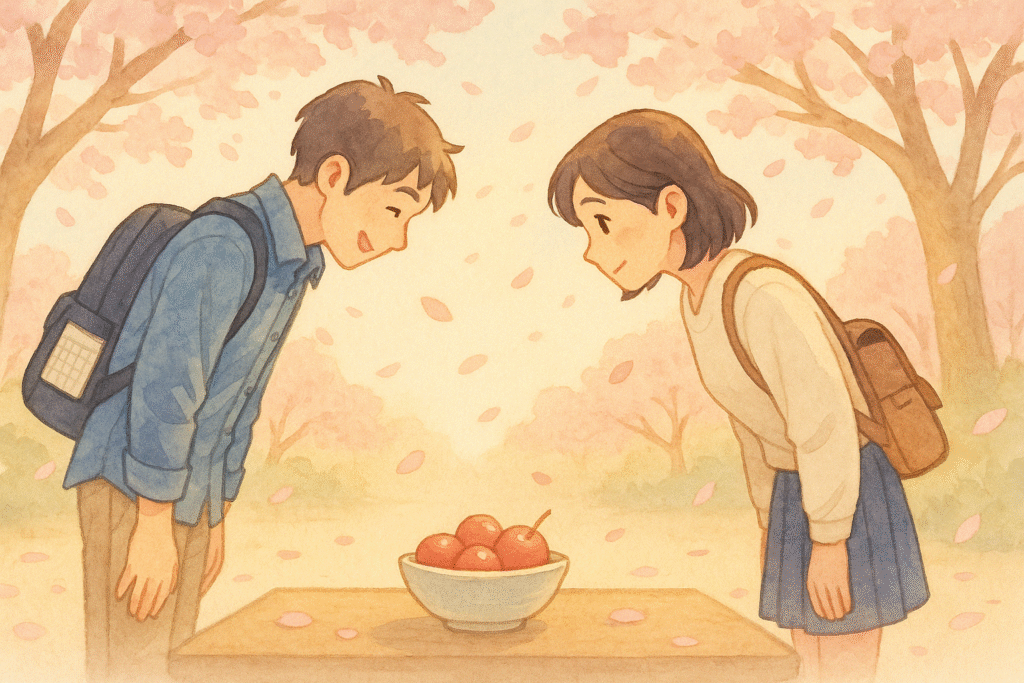Are you learning Japanese and want to master one of the most essential conversation starters? Understanding how to ask and tell someone’s age in Japanese is a fundamental skill that opens doors to meaningful interactions. The phrase “nansai desu ka” (何歳ですか) is your gateway to this crucial social exchange. In this comprehensive guide, we’ll explore everything you need to know about age-related expressions in Japanese, from basic questions to cultural nuances.
What Does “Nansai Desu Ka” Mean?
“Nansai desu ka” (何歳ですか) is the Japanese phrase for “How old are you?” Breaking it down:
- “Nan” (何) means “what”
- “Sai” (歳) is the counter for age
- “Desu” (です) is the copula verb “to be”
- “Ka” (か) is the question marker
This simple yet essential phrase is one of the first questions Japanese language learners master, as age plays an important role in Japanese social interactions and language use.
How to Ask About Age in Different Contexts
Japanese is a highly contextual language where politeness levels matter. The way you ask about someone’s age varies depending on the relationship and setting:
Formal Situations
When speaking with someone older or in a professional context:
- “Oikutsu desu ka?” (おいくつですか) – A more polite way to ask age
- “Nenrei wa ikutsu desu ka?” (年齢はいくつですか) – “What is your age?”
Casual Situations
When speaking with friends or peers:
- “Nansai?” (何歳?) – Informal “How old?”
- “Toshi wa?” (年は?) – “Your age?”
Answering the Age Question
When someone asks “nansai desu ka,” here’s how to respond:
Basic Structure
“[Number] + sai desu” (~歳です)
Examples:
- “Nijuusai desu.” (二十歳です) – “I am 20 years old.”
- “Sanjuugosai desu.” (三十五歳です) – “I am 35 years old.”
For a more casual response, you can simply state the number followed by “sai”:
- “Nijuusai.” (二十歳) – “Twenty.”
Want to explore Japan’s culture?
Discover Japan’s rich culture, traditions, and hidden gems with our expertly crafted guides. Get insider tips on travel, food, and history. All for free!
Age-Related Japanese Vocabulary
Expand your age-related vocabulary with these essential terms:
- 年齢 (nenrei) – age
- 誕生日 (tanjōbi) – birthday
- 歳 / 才 (sai) – counter for age
- 年上 (toshiue) – older (person)
- 年下 (toshishita) – younger (person)
- 同い年 (onaidoshi) – same age
Cultural Context: Age in Japanese Society
In Japan, age significantly influences how people interact. Understanding these cultural aspects will help you navigate age-related conversations more effectively:
Age Hierarchy
Japanese society places great importance on age hierarchy (年功序列, nenkō joretsu). Older individuals typically receive more respect, and language adjusts accordingly.
Coming of Age
The age of 20 marks the official coming of age (成人, seijin) in Japan, celebrated on the second Monday of January during Seijin no Hi (成人の日, Coming of Age Day).
Asking Age Appropriately
While asking age is more common in Japan than in some Western cultures, there are still situations where it might be considered impolite, especially with women you’ve just met in professional settings.
Connecting Age to Calendar Concepts
Age discussions often lead to birthdays and dates. Here’s how to ask about someone’s birthday:
- “Tanjōbi wa itsu desu ka?” (誕生日はいつですか) – “When is your birthday?”
To respond with your birthday:
- “[Month] [Day] desu.” (~月~日です) – “It’s [Month] [Day].”
For example:
- “Hachigatsu yokka desu.” (8月4日です) – “It’s August 4th.”
This connection between age and dates makes learning both concepts together highly effective, as we’ve explored in our Japanese Date Format article.
Common Phrases Using “Nansai”
Learn these practical phrases to make your conversations more natural:
- “Ano hito wa nansai desu ka?” (あの人は何歳ですか) – “How old is that person?”
- “Kodomo wa nansai desu ka?” (子供は何歳ですか) – “How old is your child?”
- “Kyonen wa nansai deshita ka?” (去年は何歳でしたか) – “How old were you last year?”
Speaking Japanese More Naturally
Just as we explored in our Dayo Meaning in Japanese article, mastering small expressions can make your Japanese sound much more natural. When discussing age, consider these nuances:
- Adding “mō” (もう) before the age indicates “already”: “Mō jūhasai desu” (もう18歳です) – “I’m already 18.”
- Using “mada” (まだ) emphasizes being “still” a certain age: “Mada nijūsai desu” (まだ20歳です) – “I’m still 20.”
Tips for Remembering Numbers and Age Counters
Learning to express age means mastering Japanese numbers. Here are some memory tricks:
- Practice with real people: Ask friends their ages (when appropriate) and respond with yours
- Create age flashcards: Include both the number and “sai” counter
- Use age in context: Practice complete sentences like “Watashi wa ___sai desu”
- Associate numbers with visual cues: Create mental images for each number
Want to accelerate your Japanese number learning? Check out our comprehensive guide to mastering the 1000 most common Japanese words, which includes essential number vocabulary.
Language Learning Resources
Ready to take your Japanese skills to the next level? Visit our Learn Japanese page where you can access free guides to accelerate your language journey. These resources will help you master not just age expressions but all fundamental aspects of Japanese communication.
Q&A About “Nansai Desu Ka”
Q: Is it rude to ask someone’s age in Japan?
A: Asking age in Japan is generally more acceptable than in some Western cultures, especially in social settings. However, context matters.
Q: What’s the most polite way to ask someone’s age?
A: “Oikutsu desu ka?” (おいくつですか) is the most polite form for asking someone’s age.
Q: How do I tell someone I’m 25 years old in Japanese?
A: “Nijūgosai desu” (二十五歳です) means “I am 25 years old.”
Q: Do Japanese people use different counting systems for age?
A: No, ages are counted using the standard Japanese number system with the counter “sai” (歳).
Q: How do I ask a child’s age in Japanese?
A: “Oikutsu?” (おいくつ?) or “Nansai?” (何歳?) are both appropriate for asking a child’s age.
Remember: “Nansai desu ka” is how you ask someone’s age in Japanese.
Whether you’re preparing for your next trip to Japan or simply expanding your language skills, mastering age-related expressions will help you connect more authentically with Japanese speakers. By understanding the cultural context and practicing these phrases, you’ll sound more natural and confident in your Japanese conversations.
Love Japan? Stay in the Loop!
Get the best of Japan straight to your inbox: language, culture & travel insights!




